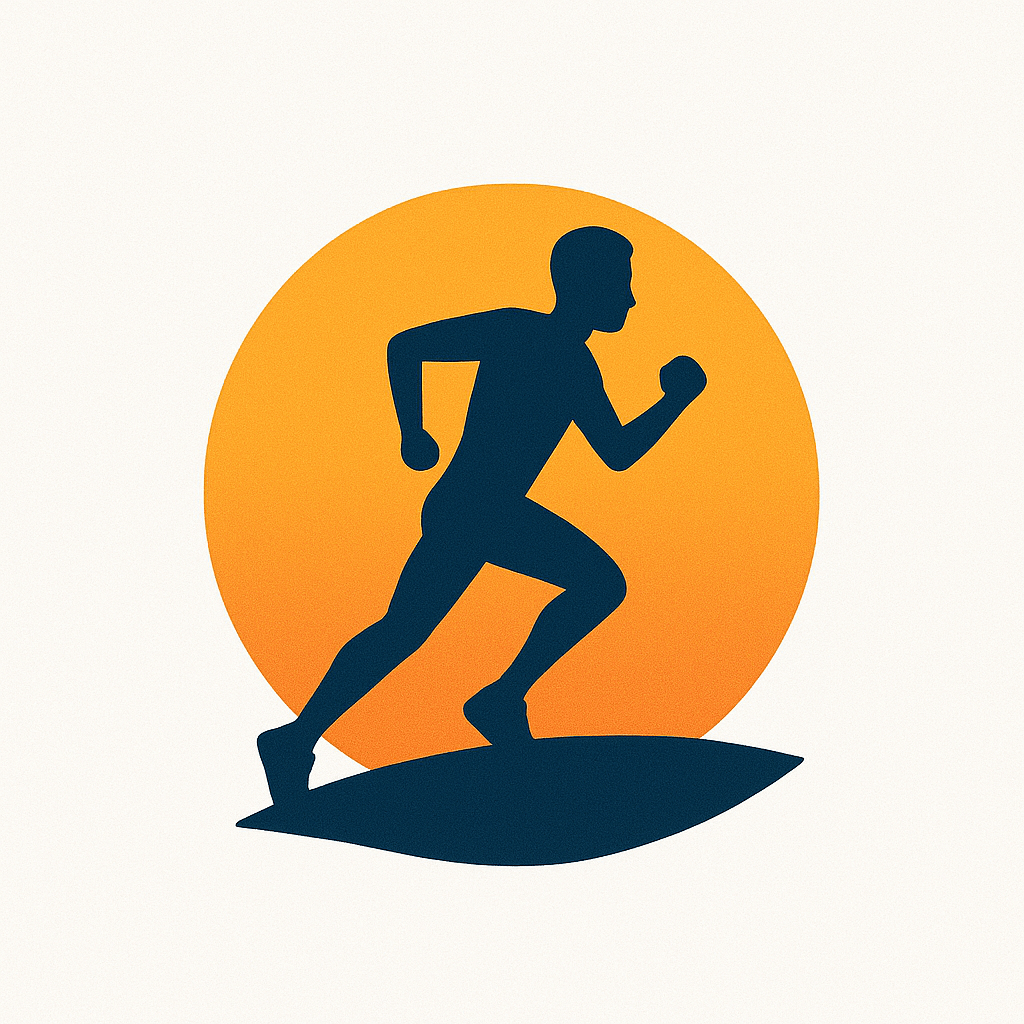When the Weight Feels Too Heavy to Move
There are days when just getting out of bed feels like a marathon.
When your thoughts are thick and heavy, like moving through fog. When your energy is gone before the day even begins. When nothing feels worth it — not work, not food, not even the things you used to love.
This is what depression can feel like. And if you’re here, you know it’s not about “feeling sad” — it’s about struggling to feel anything.
But here’s something you might not have heard enough: movement can help.
Not as a magic fix. Not as toxic positivity. But as a real, physical, and emotional shift. One that begins — sometimes gently, sometimes slowly — with a single step.
The Science-Backed Connection Between Running and Depression Relief
Endorphins, Neurogenesis, and the Brain’s Reboot
When you run, something powerful happens inside your brain.
You release endorphins — the body’s natural feel-good chemicals — which can create a short-term mood lift. But that’s just the start.
Running also increases levels of serotonin and dopamine, two neurotransmitters often depleted in people with depression. It stimulates BDNF (brain-derived neurotrophic factor), which helps your brain grow new neurons and improve function in areas tied to emotion regulation and memory.
In short: running helps your brain rewire itself toward healing.
And these aren’t just “runner’s high” anecdotes. This is measurable, peer-reviewed, physiological change.
Research-Backed Results: What the Studies Show
A landmark study published in the Journal of Psychiatry & Neuroscience found that regular aerobic exercise was as effective as antidepressant medication in treating major depressive disorder for many patients — and with fewer side effects.
Another meta-analysis published in JAMA Psychiatry in 2022 showed that just 15–30 minutes of physical activity per day can significantly reduce the risk of developing depression — by up to 26%.
These aren’t fringe findings. They’re part of a growing, global body of research that supports what many of us have experienced personally: running helps.
The Emotional Power of Movement
Running as a Form of Self-Compassion
Depression often brings self-criticism and shame. You feel lazy, broken, unworthy.
Running can be an act of rebellion against those thoughts — a quiet, firm statement: I deserve to feel better. I’m worth this effort.
Even a slow, quiet jog can feel like reclaiming a piece of yourself. You’re not punishing your body — you’re caring for it. You’re not escaping your mind — you’re calming it.
That shift matters.
It’s a subtle kind of healing: choosing self-compassion over self-loathing, one run at a time.
Mood Momentum: How Small Runs Create Mental Shifts
You don’t need to run far or fast. You don’t even need to break a sweat.
What matters is showing up. Short runs help break the inertia of depression — the sense that nothing will ever change. With each step, you create forward motion both physically and mentally.
You finish. You breathe deeper. You return home with the tiniest flicker of accomplishment. And those small wins? They compound.
Momentum builds. Energy returns. Hope, cautiously, begins to surface again.
What to Watch For: When Running Might Not Be Enough
Warning Signs You Shouldn’t Ignore
It’s important to acknowledge this: running is not a replacement for professional help.
If you’re noticing these signs, don’t try to run them away:
- You’re running excessively to numb or avoid emotional pain
- You feel worse, not better, after exercise
- You’re unable to eat, sleep, or function despite activity
- You’re experiencing intrusive thoughts or suicidal ideation
These are signs of deeper struggles — and they deserve expert support.
Running can be part of your healing. But it’s not the only part. And that’s okay.
Creating a Holistic Mental Health Toolkit
The most effective approach to depression is holistic.
That might mean running and therapy. Or running and medication. Or running and honest conversations with loved ones.
Mental health is complex. There’s no shame in needing more than laces and sweat.
In fact, seeking help is one of the strongest, bravest moves you can make.
Running Isn’t the Answer — But It’s a Beautiful Start
You’re not broken if running doesn’t fix everything. It’s not meant to.
But it can help. It can lift the fog — just enough — so you can see your next step. And then the one after that.
Running can be your rhythm when everything else feels chaotic. Your oxygen when your thoughts feel suffocating. Your reminder that you are still here. Still moving. Still fighting.
If you’re in a dark place, please don’t stay silent. Reach out. Ask for help. Let running be your companion — not your cure.
You don’t have to run far. You just have to begin.






Leave a Reply